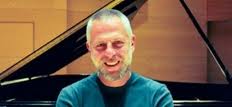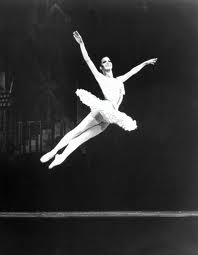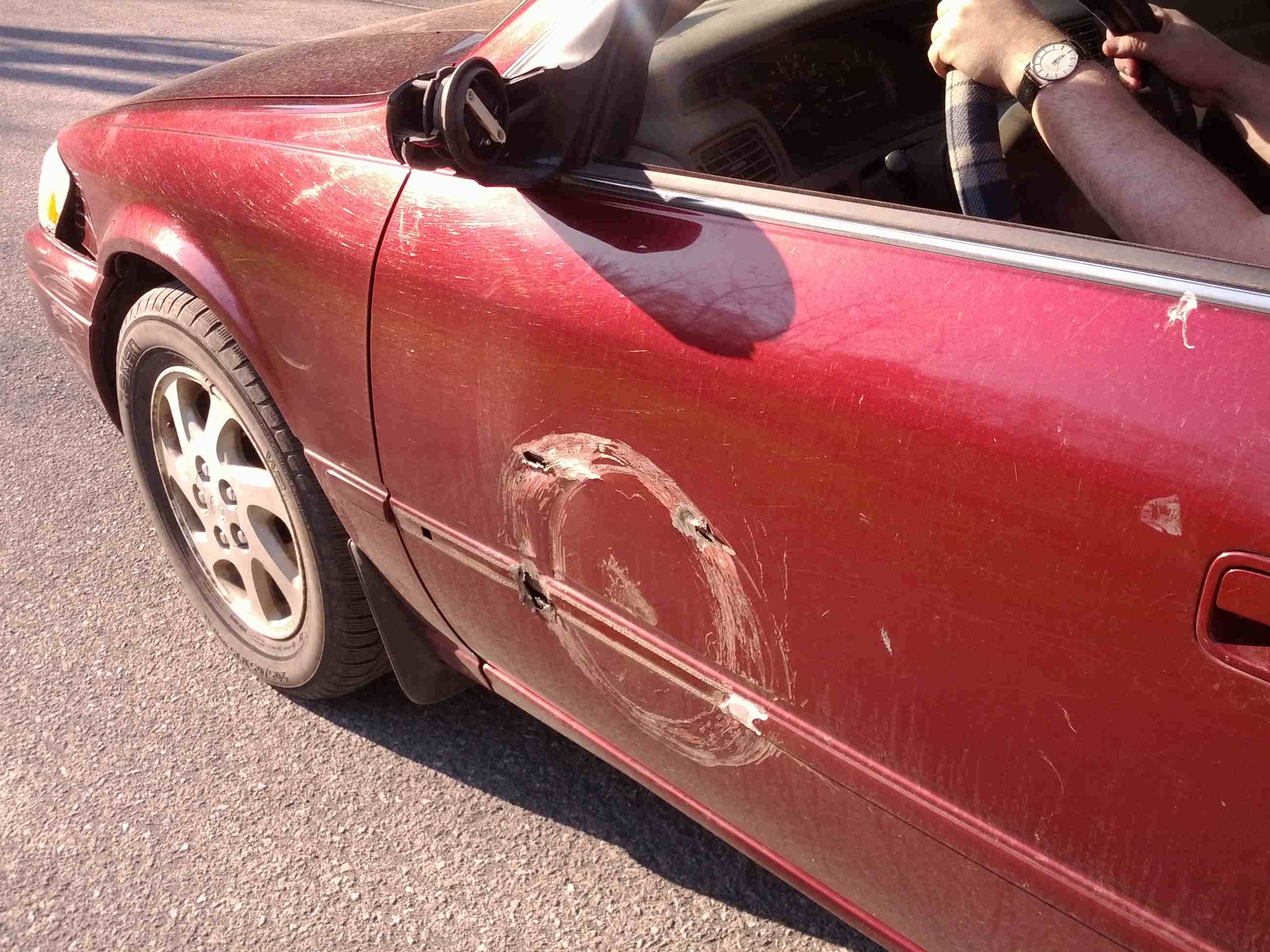
It happened very quickly. I must have felt the impact, but I was aware only of the very loud noise from the side of my car. I apparently hit the brakes very quickly, and the driver of the truck must also have veered quickly back into his lane, because there was no further damage, only that initial impact.
I was driving south on the New York Thruway, at 8:30 in the morning, on Tuesday, April 10, ready to listen to The Writer’s Almanac in a few minutes. My wife was drowsing in the passenger seat. I was on my way to teach my class at the Center for Lifetime Study, which meets at Locust Grove, south of Poughkeepsie, about an hour from my home in Woodstock. As usual, I was driving in the right lane, at just about the speed limit (65 mph), with the speed set on cruise control. A truck pulled out of the passing lane and hit my car. The impact sheared off the driver’s side-view mirror and left a large circular gouge in the driver’s door. Obviously I was hit by the truck’s wheel.
I pulled immediately into the breakdown lane, as I did so memorizing the truck’s license plate number, which I wrote down as soon as the car stopped moving. The truck pulled over ahead of me. The driver got out of his truck and walked back to see the damage. His apology was, “I didn’t see you. You were in my blind spot.” He called the police immediately on his cell phone, then asked if I was all right. Then he said something very interesting: “Gee, people are usually a lot more upset.”
The police car arrived in about 15 minutes and took down information, then told me I’d have to wait for the report to come back from headquarters. That took another 45 minutes. Meanwhile, the policeman told me he had issued a citation to the truck driver and that I would have no problems with proving his responsibility.
I now have a cell phone of my own, and I had the cell phone number of my class manager programmed into it. I called him and told him about the accident, assured him that nobody had been hurt, and promised to get there as soon as I could. When I finally arrived, the class had only 15 minutes left to go. The students were sitting quietly, listening to a Mozart Piano Concerto, which ended just as Tara and I walked in.
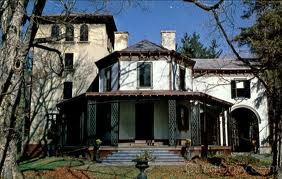 Locust Grove was the home of Samuel F.B. Morse, a very attractive site, as one would expect. Morse was a prominent painter who became wealthy through his development of the telegraph and the “Morse code.” CLS is a volunteer program for senior citizens. I was tapped to teach there as a result of pre-concert talks I gave for the Hudson Valley Philharmonic, and my music classes have been very popular there. This semester I am “teaching” a series I call “Mornings with the Great Pianists,” in which I introduce videos of great pianists in performance. It’s a VJ series rather than real teaching, but more than 70 people signed up for it.
Locust Grove was the home of Samuel F.B. Morse, a very attractive site, as one would expect. Morse was a prominent painter who became wealthy through his development of the telegraph and the “Morse code.” CLS is a volunteer program for senior citizens. I was tapped to teach there as a result of pre-concert talks I gave for the Hudson Valley Philharmonic, and my music classes have been very popular there. This semester I am “teaching” a series I call “Mornings with the Great Pianists,” in which I introduce videos of great pianists in performance. It’s a VJ series rather than real teaching, but more than 70 people signed up for it.
This accident has caused plenty of trouble for me. I don’t feel comfortable driving the car without a side-view mirror, so I’ve been using Tara’s car, which is even older than mine. A couple of times her car has been in use otherwise and I’ve had to drive my car on short trips. My insurance agency, which I like very much, took care of the contact with the truck’s insurance agency. They have not acted promptly. Apparently the driver is now claiming that I “cut him off,” an explanation which isn’t likely to hold up after the agency reads the police report. But it’s eight days as I write and I still don’t have my mirror, which I can’t replace until the truck’s agency tells my body shop where to get the replacement mirror. And I won’t have the door repaired for another three weeks. Filling out forms and spending time on the phone have wasted time I could have been using for things I prefer, like writing this blog.
Still, my prevailing attitude about this whole incident is gratitude. As I think about the accident, it seems a small miracle that Tara and I weren’t injured at all. I suspect that most incidents when a large truck hits a passenger car result in more serious damage to the car and its passengers. The impact didn’t even throw me severely off course. My car was pushed partway into the breakdown lane, but not far enough to hit the guard rail, which would probably have caused me to lose control. If things had gone otherwise, we could have been crushed between the truck and the guard rail. We could have been killed. Instead I have a car with a damaged door.
I’m curious about something. I have been doing these classes at CLS for twenty years, and I’ve never missed a class. Once or twice, I’ve been late due to traffic jams, but never by more than a few minutes. During all these years, I never had a cell phone, which I acquired only recently. The week before the accident, at the first class session, I got the cell phone number of Bill Barbash, the class manager, and programmed it into my phone. So I was able to call him within minutes of the accident, before the class was scheduled to begin, and tell him what had happened. But here’s the question: Did I arrange for this emergency call just in time? Or did I somehow clear a path for the accident to happen?
Recently I’ve been listening to two Russian classical pianists from very different eras. Vladimir Feltsman is still in his prime. Vladimir de Pachmann was one of the earliest pianists to make records. I love them both.
I was involved in the Vladimir Feltsman story in a small way. After he applied for an exit visa to leave the Soviet Union with his wife and son in 1979, he immediately became a “nonperson.” Not only was the application refused, but his career was shut down. He had already toured outside the Soviet bloc, but foreign booking agents were told he was not available for touring. He was forbidden to perform anywhere for two years, after which he was gradually given demeaning assignments like playing a recital in a kindergarten classroom on an upright piano at 10 a.m. His Russian LPs were suppressed and recordings of his concerts disappeared from the Soviet radio archives.
Various Western musicians took up Feltsman’s cause, without immediate results. Daniel Barenboim organized a tribute to Feltsman at Carnegie Hall, at which he and several other famous pianists performed. For the last number on the program, the spotlight was shone on the vacant piano while one of Feltsman’s recordings played.
As a fortunate byproduct of my work as a classical record dealer, I found two of Feltsman’s suppressed recordings in 1984: one original Soviet LP, the other a reissue on a Spanish cassette. (I have since obtained all of them.) At the time I was doing regular classical music broadcasts over WDST in Woodstock. I told Jerry and Sasha Gillman, owners of the station, that I had these suppressed recordings and wanted to do a special. Jerry suggested we attempt to get an interview with Feltsman. I expressed skepticism, but I should have known Jerry better. He called our local representative, Matt McHugh, who in turn got in touch with the State Department. Eventually we heard from the U.S. Ambassador to the Soviet Union, who turned out to be friendly with Feltsman. Sure enough, we got our interview, recorded off the phone from his apartment in Moscow. The resulting program went out on our station, then WQXR-FM in New York and a little later over the Voice of America.
The president of the closest major educational institution, Alice Chandler of the State University of New York at New Paltz, heard about the broadcast. The following month, she and a group of American university professors traveled to Russia to visit with “refuseniks,” people who had been refused permission to leave the U.S.S.R. Chandler met Feltsman at his apartment, and told him if he could ever leave she would offer him a job at her school. He joked with her that if she could get him a false passport he would go immediately.
He was finally allowed to leave in 1987, due to continuing intervention from our State Department and specifically the Secretary of State George Schultz. Feltsman eventually learned that he and several other refuseniks had been released in exchange for some concession by the U.S., but he never found out what that was.
I was among a group of people who met the Feltsmans when the arrived in the U.S. I remember vividly his four-year-old son Daniel running into the press room at Kennedy Airport bouncing a helium balloon on a string and yelling “Mickey! Mickey!” (It was Mickey Mouse.) I didn’t get to hear Feltsman’s first performance in the U.S., at the White House. (I did eventually get a tape of it for broadcast on WDST, the only U.S. outlet that got to run it.) I did hear his official debut at Carnegie Hall, which confirmed what the recordings had suggested: he was a major pianist, with a wide range of abilities and the versatility to play almost anything convincingly. I was particularly impressed with the way he played excerpts from Messiaen’s “20 Views of the Infant Jesus,” with such color and conviction that the audience was transported.
Over the intervening quarter of a century, I have heard Feltsman numerous times, occasionally in New York, more often at the college. Last weekend, as part of the inauguration ceremonies for the college’s new president, and to celebrate his 25th year there, Feltsman played a brief benefit recital at the college. Perhaps by accident, more likely on purpose, Feltsman invited comparisons with the great Sviatoslav Richter, whom he heard in concert many times. He played Mussorgsky’s “Pictures at an Exhibition,” one of Richter’s most famous triumphs. The two other works on the short program, by Schubert and Liszt, were pieces also included in Richter’s most famous recording of “Pictures” (from 1958 Sofia concerts).
I’ve always admired Feltsman’s playing. As a Bach player, he is simply unequalled among those I’ve heard. One of the many fine features of his Bach is his ability to add embellishments to repeated sections of the music, a necessity in Bach’s day but a rarity in ours. Little improvisations like that were expected in performances up through the time of Mozart and even beyond. We know that Chopin often varied his music when he played it. The few grace notes that Feltsman added to his Schubert Impromptu were nothing radical, but they showed the way he thinks about music–creatively.
Feltsman has never been a “black and white” pianist, as his very colorful Messiane playing demonstrated at my first hearing of him. But after hearing his Liszt and Mussorgsky, I feel he has widened his color pallette over the years. The shading in these works was actually reminiscent of Richter.
Creative interpretation was also a part of the style of Vladimir de Pachmann, who was born in 1848 and began making records in 1907. Pachmann has been one of my favorite pianists since I first heard him, more than 50 years ago, in an LP anthology of great Chopin players of the past.
It’s difficult to listen to Pachmann today. Most of the recordings are acoustical (done through a horn, before microphones came into use). They have limited frequency range and, usually, heavy amounts of surface noise. But that’s never stopped me from marveling at Pachmann’s performances, free in a way that would not be acceptable in today’s concert halls but always convincing and expressive. If I had to use one recording to exemplify eloquence and poetry in classical performance, it would probably be Pachmann’s playing of Chopin’s Nocturne in E Minor, Op. 72, No. 1. Despite the late opus number this is actually early Chopin, published posthumously, and it may not be exactly Chopin’s greatest music. But it’s the best sounding of Pachmann’s recordings, and one of the few among his last discs that shows the pianist completely in control.
You can hear that recording for free on the Internet. But if the idea of hearing romantic piano music (mostly Chopin, but also Liszt, Mendelssohn and others) played by a survivor of the romantic era appeals to you, there is a unique opportunity available now. The Marston label has issued a four-CD set of the complete surviving recordings of Pachmann, including quite a few that were never published on 78s. For years I have been dreaming of owning such a set, and now that it’s available, it has been done the way I wanted to hear it. That Chopin Nocturne, for example, should have been heard in clear, fairly wide-ranging sound. It was published on RCA Victor’s best shellac material (the so-called “Z” pressings). But all the previous reissues of it I have heard were sonically dull, filtered to remove surface noise. Marston’s edition is what I’ve always wanted. And for the asking price, it strikes me as a real bargain.
It’s not often I run into one of the world’s greatest ballerinas in a parking lot and she calls me by name. But there is one such creature, and she figures prominently in what I call my “bullshit resume.” I danced with her!
I came up with the concept of the bullshit resume years ago, reading the potted biographies of musicians on concert programs. The bullshit resume item isn’t a lie. Pianist X has performed at Carnegie Hall, for example. But that credit can cover a wide variety of events, from giving a solo recital in the Stern Auditorium (the main hall at Carnegie) to hiring Weill Recital Hall (a much smaller theater). “Performed at Carnegie Hall” sounds as thought it indicates a high degree of success. But it doesn’t necessarily. I could play a recital at Weill myself, if I had the money to hire the place.
One often sees something like “has sung at Carnegie Hall” on a singer’s resume. Sure. Many choruses perform there every year, and all of those people sing at Carnegie Hall.
My mother performed at Carnegie Hall, as a soloist. She played the Grieg Piano Concerto with the All-City High School Orchestra, at Carnegie Hall, in front of a packed house (mostly, one supposes, friends and relatives of the kids in the orchestra). The conductor on that occasion was Jean Morel, a prominent conductor and conducting teacher. A couple of decades later, my mother and I went backstage to meet maestro Morel after he conducted a performance at the Metropolitan Opera. “You won’t remember me,” my mother said, “but I played the Grieg Concerto with you years ago.” “Of course I do,” Morel replied. “You’re Shirley Felberg” (my mother’s maiden name). But she never used the Carnegie Hall credit on her resume.
I once played two-thirds of a Beethoven Piano Sonata at the Brooklyn Academy of Music, another apparently prestigious gig. I was actually the final–and therefore presumably most accomplished–performer on the annual recital of students of the Brooklyn Piano Teachers Guild, for which they hired the small upstairs hall at BAM. There were about 400 people in the audience, and I was nervous, but I did OK. I remember mostly that the piano was a huge old Steinway with a wonderful sound and almost no resistance left in the key action, which made it very difficult to play.
So, there’s one item in my personal bullshit resume. I played Beethoven at the Brooklyn Academy of Music. True, but essentially false. Bullshit.
Here are some other elements in my bullshit resume. My favorite musical one is not the BAM gig but that I sang as a paid soloist with a professional symphony orchestra. True, but false. I was narrated a performance of “Tubby the Tuba” with the Hudson Valley Philharmonic at a children’s concert. Tubby has a little song, and I sang it. I was even in tune, as the tape proved. (I also narrated “The Young Person’s Guide to the Orchestra” at that same concert, which was considerably more difficult. If I hadn’t been able to read music I would have had a terrible time.)
As a bullshit poet, I can claim to be a student of Sharon Olds, Marie Howe, Mark Doty, Patricia Smith, and Billy Collins. The Olds credit is closest to the truth, since I was in two workshops of hers at Omega Institute, one of them five days, the other three. Enrollment was limited to ten people and we were chosen by submission. (I was accepted as an alternate, but someone couldn’t make it.) Howe, Doty, Smith and Collins were all involved as teachers in Omega’s “Celebration of Poetry” last summer. That event, though, had open enrollment, and although it turned out to be surprisingly worthwhile there were 91 of us. There’s a chance Olds might recognize my name, but none of the others would.
Incidentally, I have also read my work at the Dodge Poetry Festival, the largest poetry event in all of North America. Yes, they have an open mic.
My favorite item on my bullshit resume is that I have danced with Martine van Hamel, one of the greatest of all American ballerinas. I’ve known Martine’s mother, Manette, and her late father, Dick, for decades. They were very much involved in the Woodstock arts scene and I ran into them many times and often visited their house. (My father almost wound up buying a violin Dick had made. The deal fell through at the last minute.) Martine, their daughter, was a lead ballerina at the American Ballet Theater, and I got to know her slightly from running into her when she was visiting her parents.
One New Year’s Eve, I attended a party at which all three of the van Hamels were present. Martine asked me to dance with her. I still remember how that felt: like an asteroid being orbited by a comet. So, we were never on stage together, thank goodness. I’m a pretty awkward dancer. But I danced with Martine van Hamel. I also interviewed her on my radio show once, when she was making a local appearance. And when I ran into her in the parking lot outside the Price Chopper supermarket in Saugerties, we had a very cordial hello.
A list of the music people I’ve interviewed for my long ago radio program, and for a few news articles since then, would be impressive, and legitimate, if that means anything to anyone. When my mother learned that I had interviewed Aaron Copland at his house, she gained a whole new level of respect for me. Others on my list are Isaac Stern, Virgil Thomson, Steve Reich, Wynton Marsalis, Michael Tree (of the Guarneri Quartet), Ivan Moravec, and plenty of other music celebrities. But that’s a legitimate list. If I claimed to know any of them, that would be bullshit.
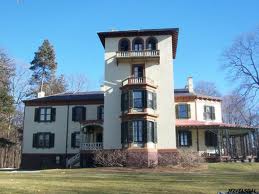 The day this post goes on line I will be starting my next class at the Center for Lifetime Study, where I have been a “presenter” for about 20 years. Teaching has almost always been part of my adult life, although I’ve seldom been paid for it. But I do it because it helps to keep my brain alive and working.
The day this post goes on line I will be starting my next class at the Center for Lifetime Study, where I have been a “presenter” for about 20 years. Teaching has almost always been part of my adult life, although I’ve seldom been paid for it. But I do it because it helps to keep my brain alive and working.
My parents were both teachers. My father was a high school teacher when my mother met him. Although their immediate connection was musical–she accompanied him at a performance, and he understandably loved her playing–I’m sure that one of his attractions for her was that he had a well-paying, steady job during the worst of the Great Depression. After they were married and their two children were born, my mother went back to college to get her Master’s degree in Education, and she became a kindergarten teacher.
Since I was a bright kid, my parents always told me they wanted me to become a college professor. It might have happened, except that I fell in love with a family–my first wife and her three daughters–and left college to marry them and support them. Although I eventually returned to school and got my B.A. in Creative Writing, I never tried to make any use of the degree. I went into the classical record business and, although semi-retired, I’m still in it.
My father, having failed to inspire me to fulfill his ambition for me, decided to fulfill it himself. After he retired from his high school job, he became a college professor, a writing instructor at the Fashion Institute of Technology. And my brother, the “dummy” of the family (he isn’t really dumber than I am, just younger) became an elementary school teacher, at which he had a long and successful career.
I did my first teaching in the early ‘70s. We learned of a new alternative school, The Ark, opening in our area of the Catskills, and it sounded like a good place for the girls. I couldn’t afford full tuition for the three of them. The school director offered reduced tuition for anyone whose parents could teach subjects they needed, so I wound up teaching writing there for the two years it lasted. My oldest daughter was one of its three graduates.
In 1980, I began my career as a classical music radio broadcaster. Although radio is primarily an entertainment medium, I always thought of my programs as being educational. I developed a style of introducing music that was brief and breezy but always included some interesting information. The formula worked, and my classical program became improbably popular and lasted for more than a decade.
The radio show opened more venues for me, including an invitation to do pre-concert talks for my local orchestra, the Hudson Valley Philharmonic. People who heard me do those talks invited me to do other relatively informal teaching jobs. I did a series of classes on Music of the 20th Century for the Dutchess County Jewish Community Center, which was well-liked but poorly attended because it started in September of 2001! I was also asked to be one of the initial teachers at the newly-formed Center for Lifetime Study, a project of Marist College in Poughkeepsie.
CLS is a credit-free, all volunteer program for senior citizens and retirees. Most of the teachers there are college professors, active and retired. But there is room for other people like me who have expertise in various useful topics. I actually have no academic qualifications at all in music. But I’ve been an active music critic and writer for decades, and apparently I know enough to be able to give worthwhile information to others. Our classes currently take place at Locust Grove (photo above), home of Samuel F.B. Morse, inventor of the telegraph and a highly respected artist. The place is a pleasure to visit!
At CLS, I have done a wide variety of music classes, mostly concerned with classical music (Bach, Mahler, Dvořák and His Followers, etc.) but not always (Ragtime, Music of New Orleans). I’ve usually selected topics I was interested in exploring, and CLS has never turned one down. I’ve also responded to a few requests, including the Mahler class. Attendance at my classes is usually robust. Surprisingly, the largest enrollment ever, almost a hundred people, was for the Mahler class. I really should use the term “classes” in quotes, because I try to do a minimum of “teaching.” Instead, I do something close to what I used to do on the radio, playing a lot of music and introducing it as concisely as I can. So I never “lecture” if I can help it, although I do encourage questions. Answering them is an interesting challenge.
My current class is a follow-up to one I did last year. I call it “Mornings with the Great Pianists.” We have 75 minutes a week. Since CLS has good video projection equipment, I have been playing videos of great pianists in performance, from my extensive collection. So I’m not a DJ in this class; I’m a VJ. This series is even more entertainment-oriented than usual. I plan to play at least 60 minutes of videos in my 75 minutes, leaving only a little time for questions (although I do hang around after class to take more).
For every one of these classes, I have to drive an hour each way, paying my own gas and tolls. It seems like a burden. But I’ve been finding my work at CLS so stimulating that I doubt I’ll give it up as long as I’m able to continue. Since CLS opened there have been several similar programs started in my area, most of them closer to me than CLS. But I’ve had so much fun there that I stay there.
Like most of my “teaching,” CLS pays me nothing. However, my work there led directly to my being invited to do “Lunch and Learn” introductions to local presentations of the Met Live in HD broadcasts. They’re done at good restaurants near the theaters, ensuring that my wife and I eat well, and I’m paid well for doing these talks. It’s ironic that I should be posing as an opera expert. Although opera was a part of my childhood, and I was frequently taken to the Metropolitan Opera when one of my parents couldn’t use a subscription ticket, I haven’t been a great opera afficionado during most of my adult life. I’m learning fast, though, and discovering that I can even enjoy sitting through Wagner’s “Götterdämmerung” twice in a couple of weeks–once to prepare, once at the broadcast–with great enjoyment. I can think of some people who’ve known me for years who would find that very, very surprising.
